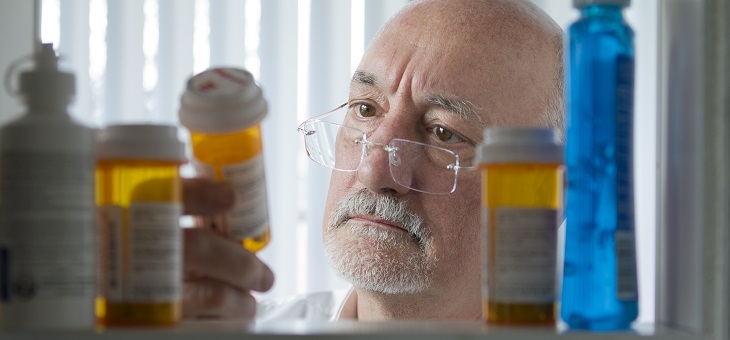Have you ever gone to your medicine cabinet, looked at some tablets and thought, “They might do the trick” or “I can’t remember what they were for”?
Have you ever stuck a cotton bud in your ear?
Everyone has a medicine cabinet, but everything in it may not necessarily improve your health. Like the humble cotton bud, which may be housed elsewhere, of course.
Now, there’s an example of something that is too often used for a purpose for which it wasn’t intended.
A seemingly harmless cotton bud is great for applying or removing make-up, doing your nails and for odd jobs around the house, but not for removing earwax. Earwax is not your enemy. It’s actually part of an ear’s natural defence system and by pushing a cotton bud in, you may simply be removing something that’s needed, or pushing it in too deeply and causing a blockage or perforating your eardrum.
Do as your grandmother always said: “The only thing you put in your ear is your elbow.”
And then, of course, there’s always a risk in using anything in your medicine cabinet that was not prescribed for you. Antihistamine tablets, for example, may be effective for some people, but for others, they can affect sleep, appetite, sex drive and cause constipation and vomiting.
You may be on medication for a heart condition, but you’ve got a headache. A couple of aspirin can’t hurt, can they?
Actually, they can. Anybody on heart tablets, especially blood-thinners, needs to know that aspirin can cause bleeding in the stomach. Anti-inflammatories can have the same impact, if overused.
Chewable antacids may also seem innocuous enough, but for some people, they can cause cramps, headaches, chest tightness or fever. You’re best to talk to a doctor before taking them or if you experience any symptoms after taking them.
Few things seem as non-threatening as health supplements or vitamin tablets. The reality is, however, that overuse – particularly of vitamins A, D, E and K – can affect your health.
Getting too much preformed vitamin A from supplements, for example, can cause dizziness, nausea, headaches and worse.
Some of you may have tablets and creams at the back of the medicine cabinet that you bought years ago. Check the expiry dates and if you’re not completely sure they are still safe for you to use, get rid of them.
And if, or when, you throw out any medicines, don’t just toss them in a bin where some person or animal may find them. Wrap them up and bag them first.
Webmd also offers information about the following substances:
- Mouthwash. It can hurt your stomach or make you nauseous. You may even vomit if you swallow too much
- Anti-bacterial soaps. These have chemicals that are supposed to kill bacteria, but they may actually help make the bacteria stronger and harder for antibiotics to kill.
- St John’s Wort. This herb taken with antidepressants can lower your body temperature and cause trembling, diarrhoea, confusion and muscle stiffness. It also may interfere with some drugs used to treat heart problems, high cholesterol and erectile dysfunction.
- Weight loss supplements. Anything that ‘guarantees’ fast weight loss or claims to be a “herbal alternative” should not be trusted.
When was the last time you cleaned out the medicine cabinet? Do you always dispose of unused medicines safely?
Related articles:
Boost your hand strength
Are generic drugs safe?
Signs of a damaged liver
Disclaimer: This article contains general information about health issues and is not advice. For health advice, consult your medical practitioner.

